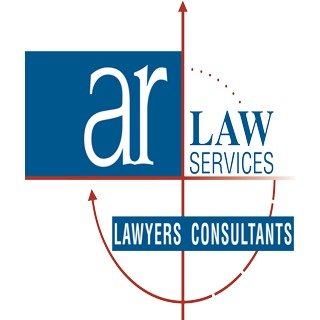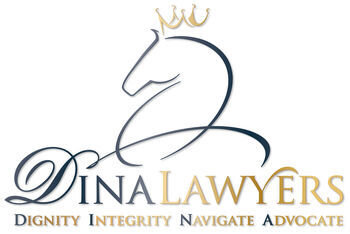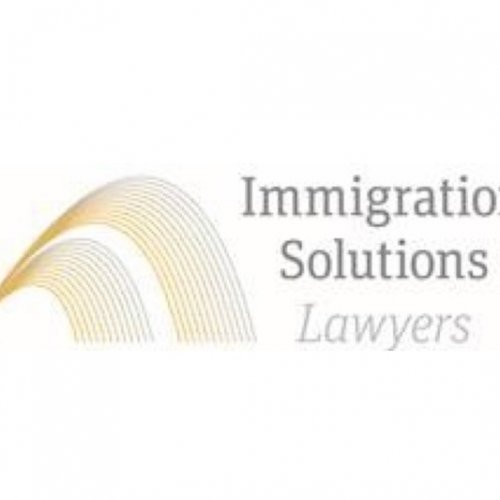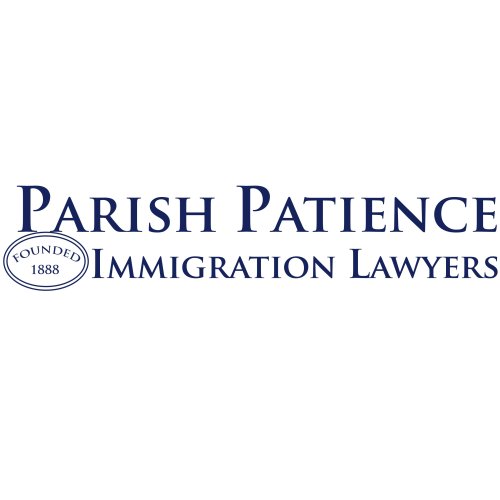Best Immigration Lawyers in Sydney
Share your needs with us, get contacted by law firms.
Free. Takes 2 min.
List of the best lawyers in Sydney, Australia
Australia Immigration Legal Questions answered by Lawyers
Browse our 1 legal question about Immigration in Australia and read the lawyer answers, or ask your own questions for free.
- What is the best thing to do, re lodge my visa or appeal.
- My student visa was refused because of financial incapacity wherein I used my sisters bank statement with the amount of 68,000 aud.
-
Lawyer answer by mohammad mehdi ghanbari
Hello,Thank you for reaching out. I understand this must be a very stressful and disappointing time, but please know that a visa refusal is not necessarily the end of the road for studying in Australia. Here is some general advice...
Read full answer
About Immigration Law in Sydney, Australia
Immigration law in Sydney is governed by Australian federal law, primarily administered by the Department of Home Affairs. Sydney, as one of Australia's largest and most diverse cities, is a popular destination for immigrants from around the world. The laws encompass a wide range of issues including visas, residency, citizenship, and compliance with immigration provisions. These laws are designed to manage the arrival and stay of non-citizens, ensuring the country's security and the welfare of its inhabitants.
Why You May Need a Lawyer
There are various circumstances where you may require legal assistance with immigration issues. Common situations include:
- Application for different types of visas, such as work, student, or family visas.
- Appealing against visa cancellations or refusals.
- Legal assistance for asylum seekers and refugees navigating complex processes.
- Transitioning from temporary to permanent residency or citizenship.
- Understanding and adherence to visa conditions and obligations.
- Legal guidance during a compliance check or dealing with immigration detention.
Local Laws Overview
Sydney follows the national regulations set forth by Australian immigration laws. Key aspects include:
- Visa Categories: There are numerous types of visas available, each with specific requirements and conditions, such as skilled, family, student, and humanitarian visas.
- Points-based System: Many visa categories, especially those related to skilled migration, use a points-based assessment for eligibility.
- Citizenship and Residency Requirements: The path to citizenship typically requires permanent residency, proof of good character, and passing a citizenship test.
- Work Rights: Different visas come with distinct work rights. It's important to understand these rights to avoid breaches that could affect visa status.
- Support for Refugees: Australia provides certain protections and pathways for refugees and asylum seekers, though these processes can be intricate.
Frequently Asked Questions
What types of visas are available in Sydney?
Sydney has access to the federal suite of Australian visas, which include visitor visas, student visas, work visas, family visas, and humanitarian visas, each catering to specific needs and eligibility criteria.
How can I apply for permanent residency in Australia?
To apply for permanent residency, you typically need to hold an eligible temporary visa and meet the eligibility criteria for one of the permanent visa categories, such as skilled migration or family reunion.
What is the points-based system for skilled migration?
This system assesses applicants based on factors such as age, work experience, education, and English proficiency to determine eligibility for certain skilled migration visas.
Can I work in Sydney while on a student visa?
Yes, student visa holders can usually work up to 40 hours per fortnight during school sessions and unlimited hours during scheduled breaks.
What should I do if my visa application is refused?
If your visa application is refused, you may have the option to appeal the decision to the Administrative Appeals Tribunal or apply again, depending on the reasons for refusal.
How can refugees seek asylum in Sydney?
Refugees can apply for protection visas either offshore (under the humanitarian program) or onshore if they are already in Australia, but the process requires thorough documentation and sometimes legal assistance.
What are the requirements for obtaining Australian citizenship?
Requirements include holding permanent residency for a certain period, demonstrating good character, passing an English language test, and passing the citizenship test or having a valid exemption.
Is it possible to sponsor a family member to come to Sydney?
Yes, you can sponsor eligible family members through family reunion visa categories, such as partner visas, parent visas, and child visas, but each has specific legal and financial obligations.
What happens if I breach my visa conditions?
Breaching visa conditions can lead to cancellation of the visa and deportation. It is crucial to understand and comply with all conditions associated with your specific visa type.
Where can I find more information or help about visa applications?
Consider contacting the Department of Home Affairs, consulting a registered migration agent, or seeking legal advice from immigration law specialists.
Additional Resources
For those seeking more information and assistance in immigration matters, consider utilizing the following resources:
- Department of Home Affairs: The primary source for information on visas, citizenship, and related services.
- Migration Institute of Australia: A professional association representing registered migration agents in Australia.
- Refugee Advice & Casework Service (RACS): Provides free legal advice and assistance to refugees and asylum seekers.
- Immigration Advice and Rights Centre (IARC): Offers legal advice and assistance on immigration matters to residents of New South Wales.
Next Steps
For individuals needing legal assistance with immigration in Sydney, here are some actionable next steps:
- Determine the specific nature of your immigration issue and document all relevant information.
- Consult the Department of Home Affairs website to gather preliminary information and application guidelines.
- Consider speaking with a registered migration agent or an immigration lawyer for expert advice tailored to your situation.
- Prepare for any consultations by gathering relevant documents, such as passports, visa documentation, and correspondence with governmental bodies.
- Check legal service directories or community legal centers for potentially free or low-cost legal services if finances are a concern.
Lawzana helps you find the best lawyers and law firms in Sydney through a curated and pre-screened list of qualified legal professionals. Our platform offers rankings and detailed profiles of attorneys and law firms, allowing you to compare based on practice areas, including Immigration, experience, and client feedback.
Each profile includes a description of the firm's areas of practice, client reviews, team members and partners, year of establishment, spoken languages, office locations, contact information, social media presence, and any published articles or resources. Most firms on our platform speak English and are experienced in both local and international legal matters.
Get a quote from top-rated law firms in Sydney, Australia — quickly, securely, and without unnecessary hassle.
Disclaimer:
The information provided on this page is for general informational purposes only and does not constitute legal advice. While we strive to ensure the accuracy and relevance of the content, legal information may change over time, and interpretations of the law can vary. You should always consult with a qualified legal professional for advice specific to your situation.
We disclaim all liability for actions taken or not taken based on the content of this page. If you believe any information is incorrect or outdated, please contact us, and we will review and update it where appropriate.
Browse immigration law firms by service in Sydney, Australia
Sydney, Australia Attorneys in related practice areas.
















